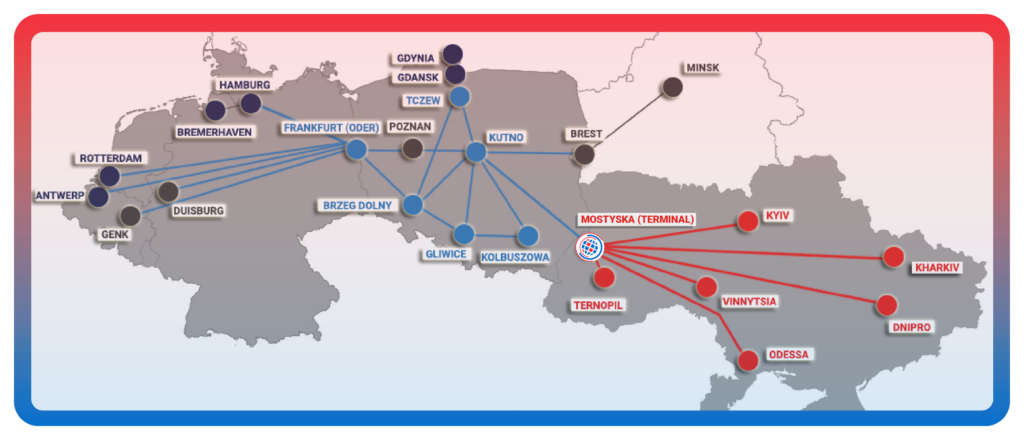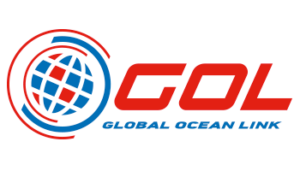
Artem Matukhno, Communication Technology Manager
From the very beginning of the COVID-19 pandemic, many feared that container shipping would face big problems and challenges. In the first half of 2020, the global economy sagged and it became clear that new difficult times were coming, making it necessary to adapt to the new conditions. There have been significant changes in the structure of consumption and purchases.
The coronavirus outbreak has severely affected container shipping as one of the segments of the transport industry most dependent on Chinese exports. Enterprises began to stand idle not making products that had to be shipped in containers. The demand for raw materials and goods from China has significantly decreased. Due to the lack of cargo, the capacity of ships began to decrease. This led to almost all sea carriers starting to lose huge amounts of money. Attempts to compensate for the losses by introducing additional freight surcharges had a negative impact not only on the commodity markets, but also on the markets of finished goods. Container lines began to massively revise long-term contracts, which were at risk of disruption and delay.
China was not only one of the first countries affected by the coronavirus, but also one of the first countries to restore production and exports. As a result, a lot of cargo in containers continued to be sent to America, but the containers were not returned. In Q3 2020, China experienced a real collapse: there was a shortage of containers in ports, which increased delivery times, as well as tariffs for container transportation, which reached historical highs.
Towards the fall of 2020, global trade began to slowly recover: the easing of quarantine measures, as well as stimulus policies aimed at supporting consumer demand, contributed to a further increase in container trade flows. However, despite trade’s rapid growth , there were fewer and fewer free containers, and the prices for transportation increased significantly.
According to the data of the statistical service Container Trade Statistics, in October 2020, the global demand for container transportation was estimated at 15.21 million TEU, which is almost 5% more than a year earlier.
GLOBAL OCEAN LINK EXPERIENCE
At Global Ocean Link,we perfectly felt all these changes for ourselves, and this was clearly confirmed by the internal statistics of the company. Nevertheless, despite all the pessimistic forecasts, 2020 was quite a positive year for Ukraine. For the second year in a row, the container turnover in the ports of Ukraine exceeds the million mark. In 2020, it grew by almost 4% and reached 1.046 million TEU (the absolute record of Ukraine was set in 2008 at 1.254 million TEU).
Last year we managed to forward a much smaller volume of containers than we had planned – 29,788 TEU. However, our ambitions and optimistic attitude are still aimed at returning to the best performance in the new year. Surviving a crisis brings something new to the work, there is a study of problematic situations and their prevention and optimization. We toughen up, get stronger, and move on. This is the essence of modern logistics.
Despite everything, in the “pandemic” situation, alternative types of transportation, such as overland, began to develop. Consider the intermodal segment and especially rail transport. In 2020, more than 425,000 TEUs were transported across Ukraine, which is 10.7% more than in 2019. At the same time, 230,000 TEU were transported as part of container trains – 41% more than a year earlier.

Volodymyr Huz, Associated Partner of Global Ocean Link
ALTERNATIVES AND FUTURE PLANS
In January 2020, Global Ocean Link successfully launched a container train with 40 TEUs to Western Europe, which covered the experimental route from the Nickel-Pobuzhsky station to Rotterdam in 9 days. The main feature of this project was that the transportation took place on a new route through the border crossing “Mostyska-II / Medyka” directly to the Netherlands.
Later together with the logistics operator PCC Intermodal, we organized regular direct rail service between Poland and Ukraine. The main goal was to create a regular service in conditions when 87% of cargo transportation between Ukraine and the EU is carried out by road. In the first two months, more than 300 TEUs were delivered to their final destinations. Despite a not-so-fantastic start, this project attracts 3-5% of new TEUs on each train.
Also together with Maersk Line we launched a new railway route from the Port of Gdansk to Ukraine. Trains from Poland reach the Mostyska-II station, and then the cargo is transported along routes in the direction of Kyiv, Ternopil, Vinnytsia, Kharkiv, Dnipro and Odesa. Transit delivery time is less than 5 days. The new route is to become part of the transport corridor between the Baltic Sea and the Black Sea. The corridor will connect Turkey, the Port of Chornomorsk and Poland. In the near future, Global Ocean Link plans to expand new routes to Central Europe, especially towards Italy.

Recently, together with MOST Logistic Terminal, we launched a new multi-modal project – “Mostyska Container Terminal”. The location on the border with Poland at the railway station “Mostyska-II” allows us to optimize the logistics routes for transit, export and import between Ukraine and the EU countries, thereby minimizing transport costs and, most importantly, the time required for transportation. We also plan to build a new generation logistics complex. The area for the future terminal is located close to Odesa, near the railway track and the international highway E95. The proximity to the Port of Odessa will allow us to deliver cargo efficiently and quickly. But at the moment, we are in the active stage of searching for partners and investors, and we will gladly consider all offers. Let’s develop Ukraine together!
 Global Ocean Link LTD (Head office)
Global Ocean Link LTD (Head office)
84, Balkivska str., off. 404, Business-center “Prestige”
Odesa, 65005, Ukraine
+38 (048) 797 20 48
sales@gol.ua
www.gol.ua



